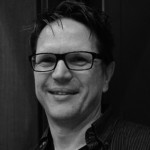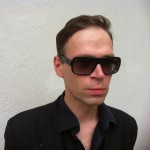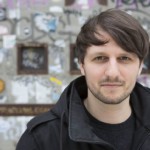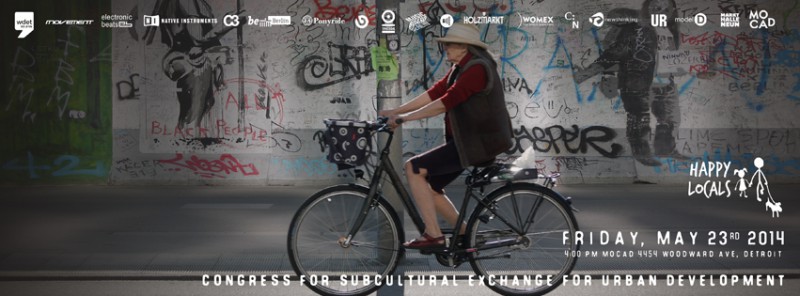 |
Jennifer DautermannC3 Initiator and Artistic Director Jennifer Dautermann specialises in modern and contemporary classical music as well as club music. Born in Detroit, educated at the Interlochen Arts Academy and the University of Michigan School of Music, Jennifer worked for many years in the ‘Arts and Creative Industries’ department of the British Council, Germany and was in charge of the conception, realisation and evaluation of various projects in the areas of visual arts, culture, music and film. She brought the firstC3 / Club Contemporary Classical Festival (2009) into being and has been developing it ever since. At the same time she is project manager of CLASSICAL:NEXT, a new professionals forum for classical and art music, initiated by CLASS and produced by WOMEX. |
 |
Katja LuckerBorn in the north of Germany as a captains’ daughter Katja Lucker started her career as an actress in Berlin in 1990 but quickly became successfully self-employed as a cultural manager. Her portfolio ranges from managing tasks at the “Kesselhaus Kulturbrauerei” Berlin, the “Karneval der Kulturen” and a work with Karlheinz Stockhausen at “Haus der Berliner Festspiele”. From 2007 until 2011 she continued working as a project manager for creative industries during Ruhr.2010 – the European Capital of Culture realizing amongst others a project in Shanghai. Throughout the whole time she also acted as a driving force in various local music networks in her position as associated member and juror of divers Berlin music promotion programs. Since January 2013 Katja Lucker has been appointed music representative of Berlin to lead the newly established Musicboard Berlin. |
 |
Dimitri HegemannDimitri Hegemann was born in ’54 in a small village in Westfalia. He moved to Berlin because he didn’t find a platform where he could realise his visions for alternative living. So he started studying Musicology at the Freie Universität Berlin in ’78. His world began observing the night in West-Berlin and there he started to become active in the music scene. Between ’82 and ’90 he organized five Berlin Atonal Festivals – new codes in vision & sound. In ’86 he opened a store in an old shoe store, inspired by the Dadaist movement, called ”Fisch Buero”. This space was registered on Misses Fisch, who was a phantom. In ’88 he opened the acid house club called “UFO”. After the wall came down, Dimitri and his friends opened the legendary techno club Tresor, which was located between the two infamous walls – in the heart of the reunited city. Tresor became the birthplace of the biggest movement of the last century – Techno. In 2005 the city of Berlin made a big mistake and sold the ground where Tresor was located to a boring insurance company and Tresor had to move out. In March 2007, Hegemann found a new home for the club in an abandoned power plant in the middle of Berlin. The so called “Kraftwerk Berlin” is now home for art events throughout all genres. His newest concepts are the “Happy Locals” and the Academy for Subcultural Understanding. He considers himself a cultural activist and space pioneer – aiming to turn industrial ruins into cultural spaces. Only art can save small cities to not vanish into meaninglessness. |
 |
Mario HustenHe finished University of Economics in East-Berlin. When the wall fell he was engaged in the students’ movement. Later he worked as journalist before he changed to Gruner+Jahr (G+J), a leading European publishing house. For G+J he established and led newspaper publishers as well as built printing plants in Eastern Europe. Later he was in charge of the internationalization of magazines like GEO before he took the overall responsibility for Eastern Europe and new markets. Mario left Gruner+Jahr in 2006, advised international media businesses and supported start-ups in the Adriatic area. In 2010, he returned to Berlin together with his family and founded the cooperative founders network “Ideas create value“. Currently he is chairman of the Holzmarkt cooperative as well the as the Cooperative for urban creativity, which focus on sustainable urban development projects. |
 |
Andreas GebhardAndreas Gebhard is co-founder of re:publica and since 2012, chief executive of republica GmbH. re:publica has developed from a bloggers meet-up into one of the world’s most important festivals for the digital society. Andreas is particularly focused on internationalising the event. He is also founder of newthinking communications GmbH and has for over ten years used these and other capacities to campaign for Open Source processes and strategies in society and business. In his free time, he is an enthusiastic member of the executive board of Tennis Borussia Berlin. |
 |
Max DaxMax Dax is a journalist, photographer and entrepreneur from Berlin, Germany, and currently editor-in-chief of Electronic Beats Magazine and electronicbeats.net by Deutsche Telekom/T-Mobile. He has written a series of books, among them the official oral history of Einstürzende Neubauten (“No Beauty Without Danger”), together with Robert Defcon. He released the best-selling CD compilation “La Musica della Mafia / Il canto di Malavita” (PIAS Recordings). |
 |
Lutz LeichsenringLutz Leichsenring is the press officer and board member of the Clubcommission Berlin. Lutz also happens to be a member of Berlin’s Chamber of Commerce and Musicboard, where he frequently votes on city development issues that serve to protect club areas affected by gentrification. Lutz started an internet business after High School when he was 19 and studied event management and politics. 2004-2010 he owned a club and a restaurant in Southern Germany. After selling these business he now focusses on his agency YOUNG TARGETS which is into student- and social media marketing in Berlin and London. |



